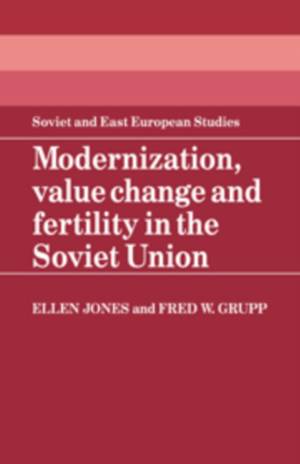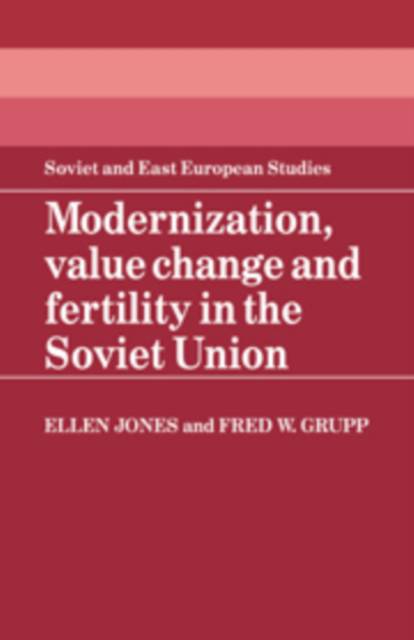
- Afhalen na 1 uur in een winkel met voorraad
- Gratis thuislevering in België vanaf € 30
- Ruim aanbod met 7 miljoen producten
- Afhalen na 1 uur in een winkel met voorraad
- Gratis thuislevering in België vanaf € 30
- Ruim aanbod met 7 miljoen producten
Zoeken
€ 67,95
+ 135 punten
Uitvoering
Omschrijving
This book is about social change in the Soviet Union. It explores the way in which the social, economic and political transformations encompassed by modernization affect values and behaviours. Its analytical focus is the family and the system of norms and values governing sex roles and familial relations. The study is part of a larger effort to unravel the complex linkages between modernization, value change, demographic change and public policy. It has two related objectives. First, it explores the relationship between value change and fertility, using statistical material from the Soviet census, birth registry, and social surveys, to test specific hypotheses relating to the modernization/value change relationship. Second, it examines the impact of public policies, both intended and unintended, on family values and fertility trends. A model of Soviet fertility dynamics, based on the empirical findings of the study, is also presented.
Specificaties
Betrokkenen
- Auteur(s):
- Uitgeverij:
Inhoud
- Aantal bladzijden:
- 436
- Taal:
- Engels
- Reeks:
- Reeksnummer:
- nr. 52
Eigenschappen
- Productcode (EAN):
- 9780521102476
- Verschijningsdatum:
- 12/03/2009
- Uitvoering:
- Paperback
- Formaat:
- Trade paperback (VS)
- Afmetingen:
- 140 mm x 216 mm
- Gewicht:
- 548 g

Alleen bij Standaard Boekhandel
+ 135 punten op je klantenkaart van Standaard Boekhandel
Beoordelingen
We publiceren alleen reviews die voldoen aan de voorwaarden voor reviews. Bekijk onze voorwaarden voor reviews.











